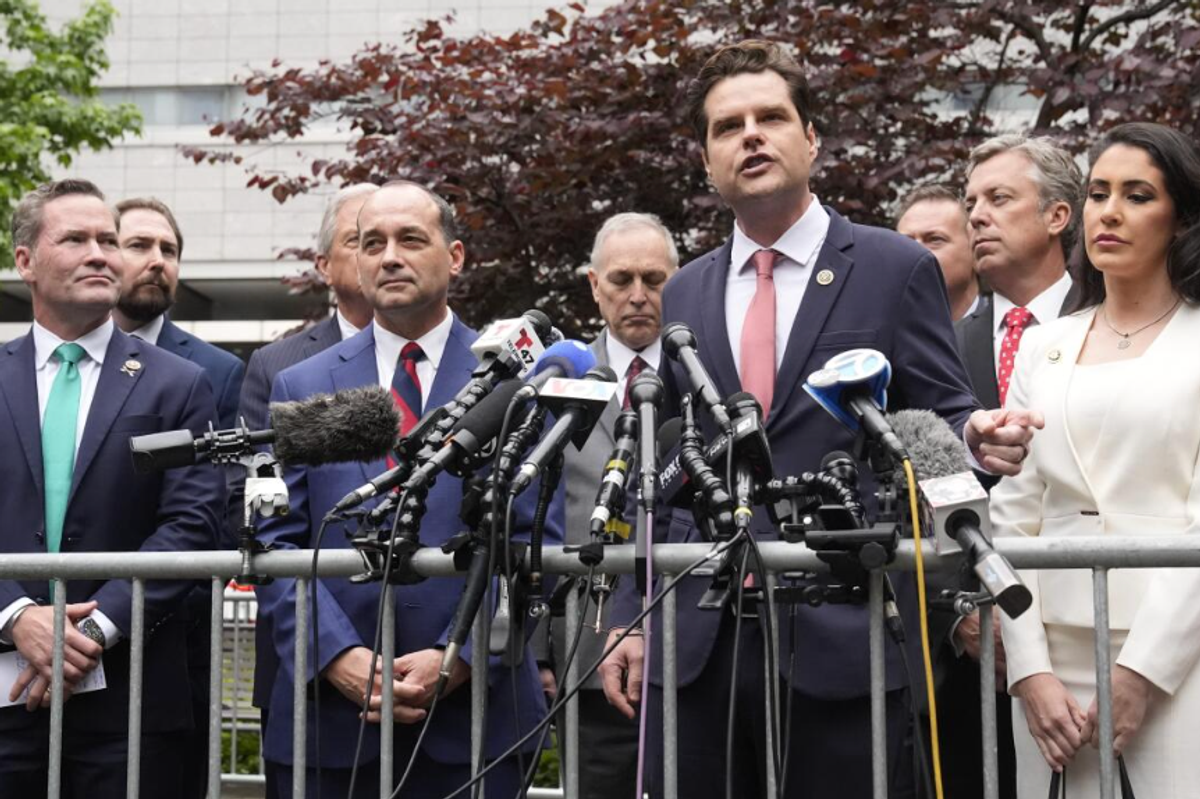
In my experience, you can fool a golden retriever exactly twice with the old hidden ball trick. Our late dog Big Red was as exuberant an animal as ever lived. I used to say that if he wasn’t wet, cold, and hungry, Red was happy.
Then I had to rescue him from the Arkansas River during a sleet storm. He’d plunged in to chase ducks but couldn’t clamber back up the steep, slippery bank on his own. Coated in mud with icicles hanging from his coat, Red remained optimistic. See, after his walk came supper. His eyes shone like a puppy’s all the way home.
Anyway, that dog would fetch his beloved tennis ball until your arm ached from throwing it. Prank him with a fake toss and he’d charge off and search eagerly before returning with a quizzical look. A second fake drew less assiduous searching. After that, he kept his eyes riveted on your hand. No fooling him anymore.
It will be seen that Big Red would have been overqualified to edit The New York Times. Responding to the Washington bureau’s latest embarrassing front page blunder, Times executive editor Dean Baquet appeared to agree with the newspaper’s public editor Margaret Sullivan that something needed to be done about “the rampant use of anonymous sources” who turned out to be blowing smoke, or worse.
A second senior editor, Matt Purdy, offered an alibi when he claimed, “We got it wrong because our very good sources had it wrong… That’s an explanation, not an excuse. We have an obligation to get facts right and we work very hard to do that.”
Reporters Matt Apuzzo and Michael S. Schmidt were absolved from blame. They’d simply written down what their excellent sources told them.
OK, that was a ball fake.
The above quotes don’t actually appear in public editor Sullivan’s analysis of the latest New York Times bogus blockbuster. They’re actually taken from her July 27 article headlined “A Clinton Story Fraught With Inaccuracies: How It Happened and What Next?”
Perhaps you remember “Criminal Inquiry Sought in Hillary Clinton’s Use of Email” — at least that was the original headline. Reporters Schmidt and Apuzzo had cited “senior government officials” hinting that the former secretary of state was in immediate legal peril.
Except, uh-oh, “virtually everything about the story turned out to be wrong. Clinton was not a target. The referral was not criminal. And as the story itself noted, the emails in question had most likely not been classified at the time Clinton saw them.”
It was, in short, a total journalistic failure, although you can still hear pundits predicting Hillary’s imminent indictment in the non-existent criminal probe.
(I’ve lost track of how often Kenneth Starr acolytes in the Washington media had Mrs. Clinton measured for an orange prison jumpsuit during the phony “Whitewater” investigation. Check out Joe Conason’s and my ebook The Hunting of Hillary for details.)
The newspaper’s latest embarrassing failure, involving as it does a matter of national security, is far more significant. “U.S. Visa Process Missed San Bernardino Wife’s Online Zealotry,” a December 12 front page headline read. But once again, the Times came up far short.
This time, ace reporters Schmidt and Apuzzo had found unnamed “American law enforcement officials” who claimed that San Bernardino terrorist Tashfeen Malik had “talked openly on social media about her views on violent jihad,” and that feckless US immigration officials had failed to check her Facebook page. The implication was clear: Had they done so fourteen innocent Americans might still be alive.
Once again, however, the secret insiders were wrong. There was nothing open about Tashfeen Malik’s crazed musings. Written in Urdu under a pseudonym, as FBI director James B. Comey subsequently made clear, they’d been sent as private messages not visible to the public. No way investigators could have found them without a search warrant.
Evidently, The Times’ trusted sources (the same individuals?) didn’t know enough about how Facebook and similar social media sites work to be aware of these issues. Reporters and editors seemingly didn’t know enough to ask.
Also once again, the newspaper dragged its feet for most of a week before admitting error. Absent the insistence of Washington Post blogger Erik Wemple, it might never have done so. The Times’ stalling also had the effect of giving Republican presidential candidates time to falsely blame everything on Obama administration’s imagined “political correctness.”
For his part, Baquet, the executive editor, just back from snuffling in the brush for his lost tennis ball, told Margaret Sullivan that he “rejected the idea that the sources had a political agenda that caused them to plant falsehoods.” He did allow as how she was correct that the Times needed more stringent reporting procedures.
Gosh, you think?
Otherwise, isn’t it past time people started saying out loud that the newspaper’s vaunted Washington bureau has a serious problem?
Photo: Steve Beale via Flickr


